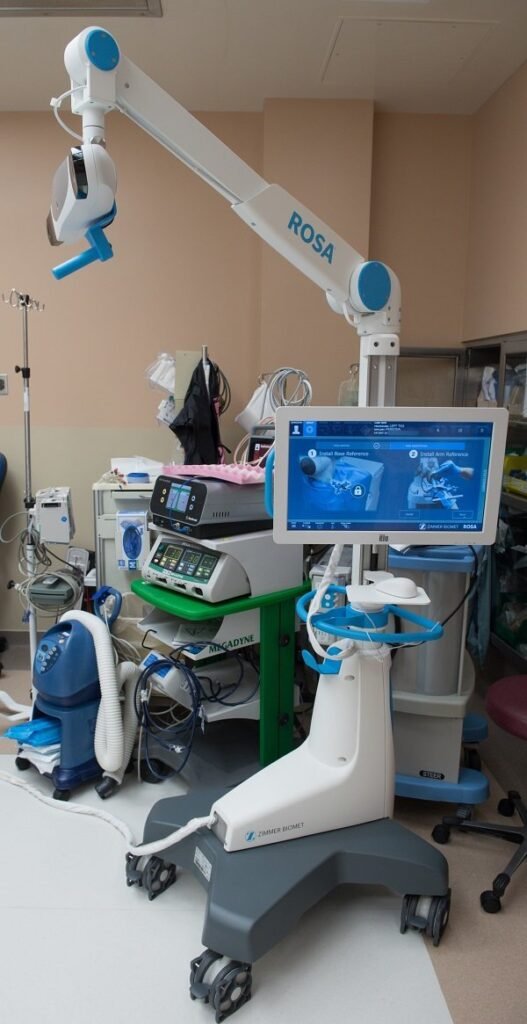Thyroid
The thyroid gland plays a crucial role in regulating metabolism, energy expenditure, and overall weight control. Therefore, it is not surprising that thyroid dysfunction, particularly hypothyroidism, is often associated with weight gain and in some extreme cases, also obesity.
Dr. Dalal has a thyroid treatment center in Pune where he has also on-boarded a thyroid specialist in Pune to give his patients only the best care.
Thyroid and Obesity have an extensive connection between each other:
- Hypothyroidism and Metabolic Rate: Hypothyroidism occurs when the thyroid gland does not produce enough thyroid hormones, specifically thyroxine (T4) and triiodothyronine (T3). These hormones are responsible for regulating the body’s metabolic rate—the rate at which the body converts food into energy. When thyroid hormone levels are low, the metabolic rate slows down, resulting in reduced calorie burning and energy expenditure. This metabolic slowdown makes it easier to gain weight and more challenging to lose it.
- Leptin Resistance: Leptin is a hormone produced by fat cells that helps regulate appetite and energy balance. In individuals with hypothyroidism, the disrupted thyroid function can lead to leptin resistance. Leptin resistance occurs when the brain does not respond appropriately to leptin’s signals, causing an increase in appetite and a decrease in energy expenditure. This can result in overeating and weight gain.
- Fluid Retention: Hypothyroidism can cause fluid retention, leading to weight gain. The low levels of thyroid hormones affect the kidneys’ ability to eliminate excess water and sodium from the body, resulting in fluid accumulation and bloating. While this weight gain is primarily due to water retention, it can still contribute to the overall increase in body weight.
- Sluggish Digestion: A sluggish thyroid can also affect digestion. Hypothyroidism can slow down the movement of food through the digestive tract, leading to constipation and a decrease in bowel movements. This can contribute to feelings of bloating and discomfort, which may be misconstrued as weight gain.
- Insulin Resistance: Thyroid dysfunction, particularly hypothyroidism, is associated with insulin resistance. Insulin is a hormone that helps regulate blood sugar levels. When the body becomes resistant to insulin, it can lead to high blood sugar levels and an increased risk of developing type 2 diabetes. Insulin resistance also promotes fat storage and weight gain, particularly around the abdomen.
- Medications: Some medications used to treat thyroid disorders, such as levothyroxine, can contribute to weight gain as a side effect. It is essential to work closely with a healthcare provider to find the optimal medication dosage and to monitor any potential effects on weight.
It is important to note that not all patients with thyroid dysfunction will experience obesity, and individual factors such as genetics and lifestyle choices also play a huge role. Additionally, it is crucial to differentiate between thyroid-related weight gain and other factors that can contribute to obesity, such as poor diet and sedentary lifestyle.
Managing thyroid-related weight gain and obesity involves following a multifaceted approach. Treatment typically involves optimizing thyroid hormone levels through medication, adopting a balanced and nutritious diet, engaging in regular physical activity, managing stress levels, and addressing any underlying insulin resistance. Working with a healthcare professional, such as an endocrinologist or a registered dietitian, can help develop a personalized plan to manage thyroid-related weight gain effectively.
Hypothyroidism can slow down the metabolic rate, lead to leptin resistance, cause fluid retention, affect digestion, promote insulin resistance, and be influenced by certain medications—all of which can contribute to weight gain and obesity. By addressing thyroid dysfunction and implementing lifestyle modifications, patients with thyroid-related obesity can work towards achieving a healthier weight, overall well-being and a better quality of life.


Dr. Shrikant Dalal
MBBS, DNB - Orthopedics/Orthopedic Surgery Spine Surgeon (Ortho), Spine And Pain Specialist, Joint Replacement Surgeon

